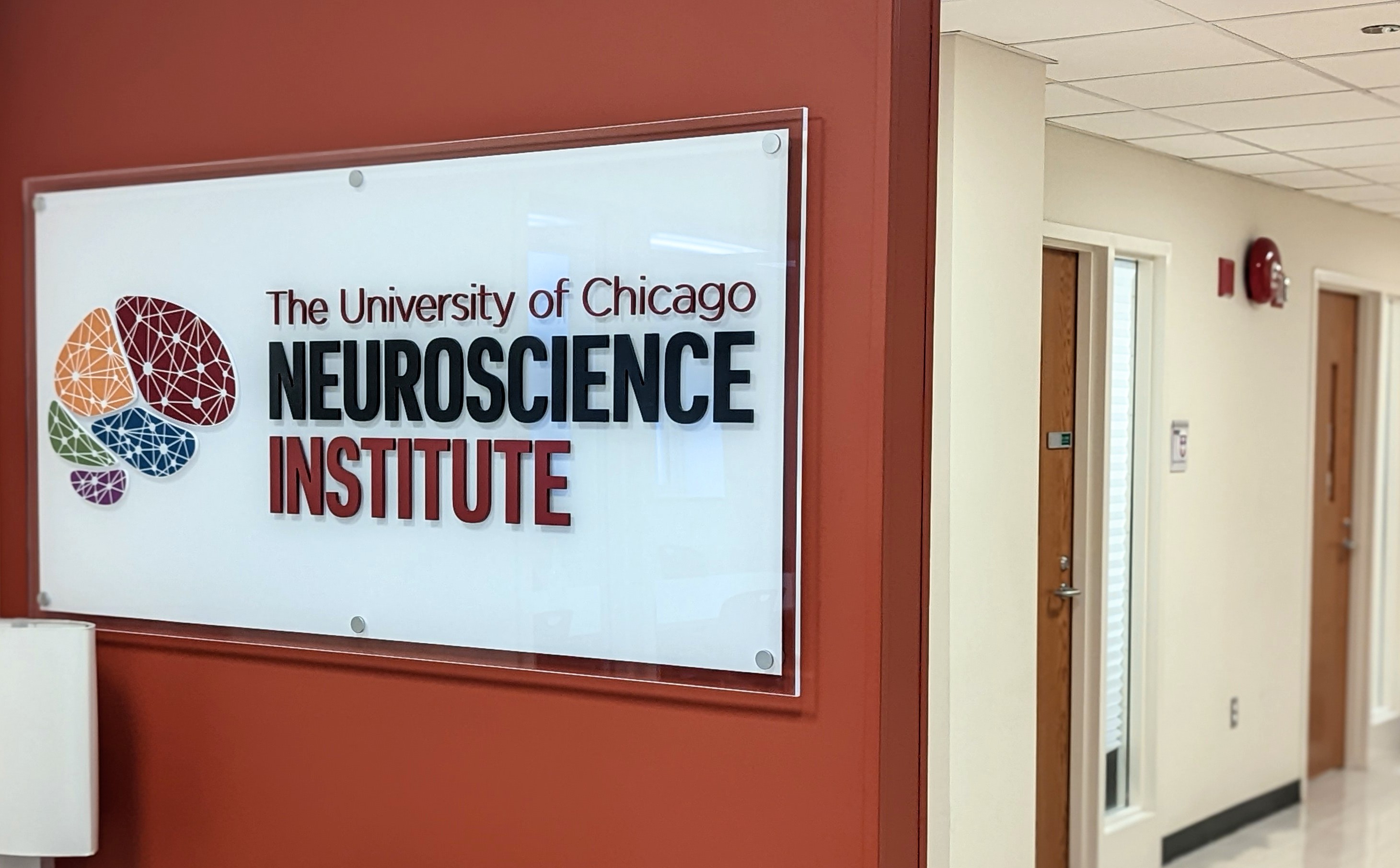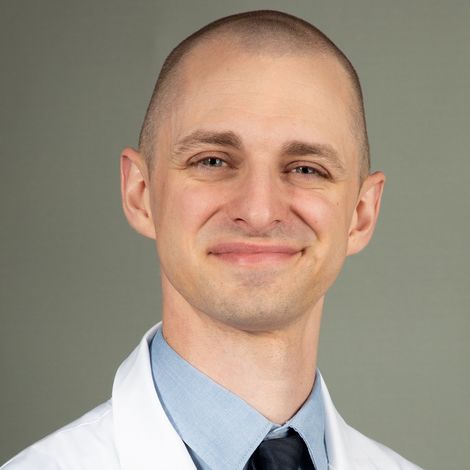Meet the new members of the Neuroscience Institute 2024-2025

The Neuroscience Institute is pleased to welcome six faculty memberships to the team. Emma Brett, PhD (Psychiatry), Seth Himelhoch, MD, MPH (Psychiatry), Federico Salas-Lucia, PhD (Medicine), David Satzer, MD (Neurological Surgery), James Siegler, MD (Neurology), and Rong Grace Zhai, PhD (Neurology) joined the Institute in the 2024-2025 academic year.
Learn more about them:

Emma Brett, PhD
Assistant Professor, Department of Psychiatry
Dr. Emma Brett joined the faculty as an Assistant Professor in the Department of Psychiatry and Behavioral Neuroscience at the University of Chicago in 2024. She earned her PhD in Clinical Psychology with a focus in Health Psychology from Oklahoma State University in 2019. Broadly, Dr. Brett is interested in factors that influence addictive behaviors with a focus on cancer prevention and nicotine/tobacco products. She is particularly interested in enhancing the accessibility and effectiveness of behavioral and pharmacological interventions in priority populations, including those with lower income, co-morbid psychiatric diagnoses, and minoritized groups. She has received a NIDA K99/R00 award to develop a mHealth vaping and dual vaping+smoking cessation intervention in young adults. As a licensed clinician, Dr. Brett works with individuals with substance use disorders, behavioral health concerns, and difficulties with anxiety, mood, and emotion regulation.
Outside of work, she enjoys spending time with her family and friends outdoors, going to concerts, reading, and cheering on the Chicago Bulls.

Seth Himelhock, MD, MPH
Lowell T. Coggeshall Professor and Chair, Department of Psychiatry
Dr. Himelhoch received his medical degree at the University of Michigan School of Medicine and completed his residency training in general psychiatry at the University of California, San Francisco. He completed a fellowship in health services research through the Robert Wood Johnson Clinical Scholars Program at Johns Hopkins School of Medicine, where he concurrently received a master's degree in public health from the Bloomberg School of Public Health. Himelhoch also completed a fellowship in Implementation and Dissemination Science through the NIH-sponsored Implementation Research Institute and additional leadership training through the Robert Wood Johnson Clinical Scholars Program.
Before joining UChicago in July 2024, Dr. Himelhok worked at the University of Kentucky College of Medicine, where he served as the Lon and Ann Hays Professor and Chair of the UK Department of Psychiatry since 2018. He is a public health researcher whose career has focused on developing and testing evidence-based interventions, including those for HIV and substance use disorders, and cancer control. He leads one of the federal Tobacco Centers of Regulatory Science, and his current work seeks to evaluate, both nationally and internationally, the most promising behavioral and pharmacologic treatments aimed at achieving maximal efficacy for smoking cessation among people living with human immunodeficiency virus/acquired immunodeficiency syndrome.

Federico Salas-Lucia, PhD
Assistant Professor of Medicine
Dr. Salas-Lucia holds a BS in Biology from the University of Alicante, Spain, a MSc in Clinical Medicine Research Department Medicine from the University Miguel Hernández, and a PhD in Public Health, Medical and Surgical Sciences from the University Miguel Hernández. He completed his postdoctoral training at the Institute for Biomedical Research "Alberto Sols", and at The University of Chicago, working with Samuel Refetoff, MD and Prof. Antonio Bianco, MD, PhD.
His research integrates neurobiology and endocrinology to delineate intracellular mechanisms that customize thyroid hormone action during human brain development and function. In the Salas-Lucia Lab, they use human iPSCs-derived models, transgenic mice, multi-omics, in vivo, confocal fluorescence microscopy, and molecular and biochemical assays to help understand the clinical findings that abnormal maternal/perinatal thyroid hormone levels correlate with neurodevelopment.

David Satzer, MD
Assistant Professor, Department of Neurological Surgery
David Satzer is a functional neurosurgeon and assistant professor at the University of Chicago. He completed residency at the University of Chicago and fellowship at the University of Colorado. His clinical interests include the surgical management of epilepsy, movement disorders, and neuropsychiatric conditions. His research is focused on local field potentials (LFP) in epilepsy. Specific areas of interest include single-cell contributions to LFP, computational models of LFP, and use of LFP in neuromodulation.

James Siegler, MD
Assistant Professor, Department of Neurology
Director, Comprehensive Stroke Center
After obtaining Bachelor's degrees in Neuroscience and History of Science, Medicine, and Technology at The Johns Hopkins University, Dr. Siegler completed his medical education at Tulane University School of Medicine in New Orleans. Thereafter, he completed the adult neurology residency program at The Hospital of the University of Pennsylvania, where he also pursued fellowships in vascular neurology and research training through StrokeNet.
With more than 200 peer-reviewed publications including original research manuscripts, reviews, and textbook chapters, Dr. Siegler's research interests include atherosclerotic disease, perfusion imaging, and eligibility of neurointervention for acute intracranial occlusion.
Dr. Siegler is also a passionate medical educator, with a focus in asynchronous educational tools. He is well-known for previously producing an independent neuromedical podcast titled BrainWaves, as well as the official podcasts for the Neurocritical Care Society, American Academy of Neurology, and the journal Stroke: Vascular and Interventional Neurology.

Rong Grace Zhai, PhD
Jack Miller Professor for the Study of Neurological Diseases, Department of Neurology
Dr. Zhai is internationally recognized for her pioneering work in Drosophila genetics and human disease modeling that allow her to perform rapid in vivo functional and imaging analyses to understand genetic and biochemical causes of rare and common neurological diseases and discover therapeutic approaches that might benefit patients.
Zhai is a Pew Scholar and has had continuous extramural funding for the past 16 years. In addition to numerous high impact publications in journals such as Cell, Nature, and Nature Genetics, she has won numerous awards including the Snyder-Robinson Foundation Researcher of the Year Award and Women in Academic Medicine Trailblazer Award.
Dr. Zhai is best known for her landmark work on NMNAT (nicotinamide-nucleotide adenylyl transferase), which is an essential enzyme for the synthesis of NAD (nicotinamide adenine dinucleotide) and a critical cofactor in axonal degeneration in peripheral neuropathy. She also established a Drosophila model for another peripheral neuropathy caused by a deficiency in sorbitol dehydrogenase. For this condition, Dr. Zhai developed and patented a novel drug therapy that is currently in phase 3 clinical trial.
Please join us in welcoming them to our community!